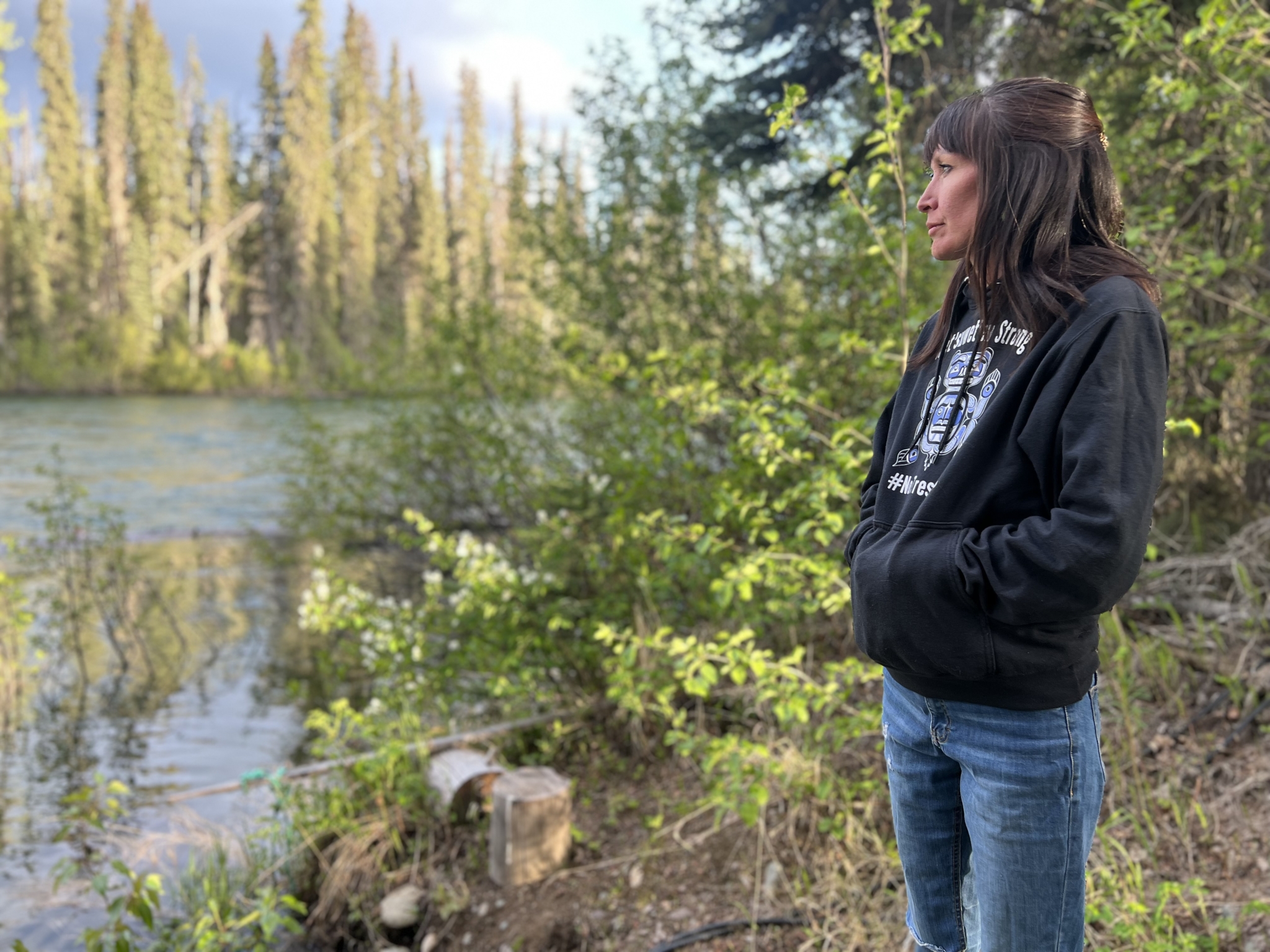Following the British Columbia Supreme Court’s decision finding Wet’suwet’en and other Indigenous land defenders guilty of criminal contempt on 12 January, France-Isabelle Langlois, executive director of Amnistie internationale Canada francophone, said, “Recent research by Amnesty International found that land defenders Sleydo’ (Molly Wickham), Shaylynn Sampson and Corey (Jayochee) Jocko have been prosecuted for peacefully protecting Wet’suwet’en territory against the construction of the Coastal GasLink (CGL) pipeline. Amnesty International is dismayed by the British Columbia Supreme Court’s decision. The organization has documented problems with these cases from the day of their arbitrary arrests to present. These are prosecutions that should never have been brought in the first place as peacefully defending unceded ancestral land should not be treated as a crime. The Crown should not oppose the abuse of process applications being made by the land defenders.”
- Learn more: Criminalization of Wet’suwet’en land defenders
- Take action: Urge Canada to drop the charges against criminalized land defenders
“Amnesty International’s research found numerous violations of the rights of Wet’suwet’en land defenders and their supporters during the large-scale police raids, arrests and detentions,” said Ketty Nivyabandi, Secretary General of Amnesty International Canada’s English-speaking section. “During the raids, the RCMP acted disproportionately, deploying officers armed with sniper rifles, dog units and helicopters, to arrest peaceful land defenders. While detained, Indigenous land defenders were treated more severely than non-Indigenous land defenders who were also arrested, including being shackled and made to appear before a judge in their underwear. Sleydo’ (Molly Wickham), Shaylynn Sampson and Corey (Jayochee) Jocko are being wronged twice by Canadian authorities; first by permitting pipeline construction to proceed without their free, prior and informed consent, and now by prosecuting them for peacefully exercising their rights to protect their land. Canadian authorities are punishing Indigenous land defenders instead of holding to account those responsible for violating their human rights.”
“Indigenous People are stewards of natural ecosystems that mitigate against the impacts of climate change. Prosecuting them for protecting those ecosystems is destructive and counterproductive,” said Ana Piquer, Americas director at Amnesty International. “At a time when Indigenous land defenders across the Americas are facing unprecedented danger for defending their territories against extractive projects, Canada should be protecting them instead of prosecuting them.”
Background
The Wet’suwet’en Nation has not consented to the construction of the Coastal GasLink (CGL) pipeline. Wet’suwet’en land defenders and their supporters are protecting the Nation’s ancestral lands and waters against pipeline construction.
On 11 December 2023, Amnesty International published the report, ‘Removed from our land for defending it’: Criminalization, Intimidation and Harassment of Wet’suwet’en Land Defenders, which examines the human rights violations experienced by members of the Wet’suwet’en Nation and their supporters by the authorities of Canada and British Columbia; CGL Pipeline Ltd. and TC Energy, the corporations building the pipeline; and Forsythe Security, a private security firm contracted by CGL Pipeline Ltd.
Amnesty International’s research found that the consultation process regarding the CGL pipeline did not meet the criteria developed by international human rights law and standards, breaching the Wet’suwet’en Nation’s collective right to consultation in order to obtain their free, prior and informed consent.
In December 2019, the British Columbia Supreme Court granted CGL an interlocutory injunction which prevents Wet’suwet’en land defenders and their supporters from blockading the Morice Forest Service Road to attempt to stop the construction of the pipeline in Wet’suwet’en territory. The injunction includes enforcement provisions under which Wet’suwet’en land defenders can be arrested for approaching pipeline construction sites and blockading the road, even though these sites are located on the Nation’s unceded territory. Amnesty International’s research determined that the injunction order’s terms are overbroad in scope and impact, and that it unduly restricts the rights of the Wet’suwet’en Nation to self-governance and to control their territories, as well as their human rights to freedom of expression and peaceful assembly. Further, the injunction has permitted CGL to proceed with construction of the pipeline without adequate consultation and without the Wet’suwet’en Nation’s free, prior and informed consent.
Amnesty International has observed that, operating under the injunction, the RCMP intimidates, harasses, unlawfully surveils and arrests Wet’suwet’en land defenders and their supporters. In November 2021, the RCMP arrested dozens of land defenders during the enforcement of the injunction, including Sleydo’ (Molly Wickham), Shaylynn Sampson and Corey (Jayochee) Jocko. Amnesty International’s research found that the nature of the tactics used by the RCMP during these large-scale police operations were not proportionate, violating the land defenders’ rights. The research also found that Wet’suwet’en land defenders and their supporters were arbitrarily arrested for defending Wet’suwet’en territory and exercising their Indigenous rights and their right to freedom of peaceful assembly.
Sleydo’ (Molly Wickham), Shaylynn Sampson and Corey (Jayochee) Jocko were charged with criminal contempt for allegedly violating the terms of the injunction order. They went on trial on 8 January 2024. The British Columbia Supreme Court (BCSC) found them guilty of criminal contempt on 12 January. The trial is ongoing, as the BCSC is currently considering abuse of process applications presented by the three land defenders which allege that their human rights were violated during the RCMP raids, arrests and detention.
Header photo: Sleydo’ (Molly Wickham), Wing Chief of the Cas Yikh House (Grizzly Bear House), Gidimt’en Clan, Wet’suwet’en Nation on Wet’suwet’en territory (All McCracken/Amnesty International)






















